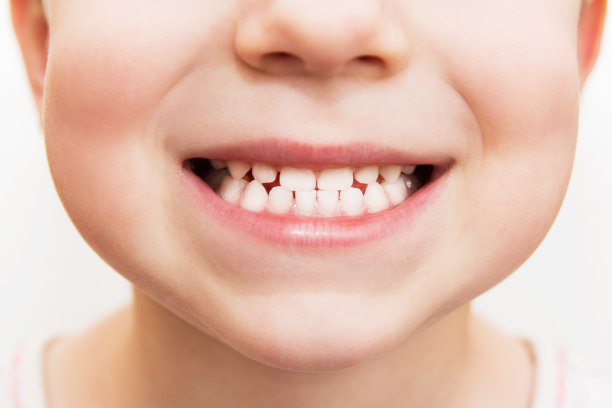Summary: The act of tooth extraction plays a significant role in modern dentistry, addressing various aspects of dental health and overall wellbeing. This article explores the necessity of tooth extraction, focusing on its impact on preventing dental disease, enhancing oral hygiene, alleviating pain, and improving overall health outcomes. Each of these factors highlights the importance of timely extractions in a holistic dental care approach, revealing why these procedures should be considered essential in contemporary dental practices.
1. Preventing Dental Disease Through Extraction

One of the main reasons for tooth extraction is to prevent the spread of dental disease. When a tooth becomes severely decayed or infected, it poses a significant risk to adjacent teeth and overall oral health. Extracting the problematic tooth can halt the disease process and prevent the infection from spreading, thereby protecting the integrity of other teeth.
Additionally, extraction is often indicated for teeth that are impacted or misaligned. For instance, wisdom teeth, which commonly become impacted, can lead to crowding, infection, and severe pain. By removing these teeth, dentists can help maintain the alignment of existing teeth and prevent future dental complications.
Moreover, tooth extraction can also reduce the risk of periodontal disease. When teeth are overcrowded, it becomes increasingly difficult to maintain proper oral hygiene, leading to plaque buildup and gum disease. By extracting certain teeth, patients can achieve better oral hygiene and significantly reduce their risk of periodontal issues.
2. Enhancing Oral Hygiene and Care
Tooth extractions can greatly enhance oral hygiene, particularly for patients with overcrowded mouths. In cases where teeth are misaligned or overcrowded, cleaning them properly can become a challenge. This can lead to plaque and tartar accumulation, resulting in cavities and gum disease. By strategically extracting teeth, patients can improve their capacity to clean their remaining teeth effectively.
Furthermore, after an extraction, patients often experience improved access for brushing and flossing, leading to better maintenance of their dental health. The removal of problem teeth opens up space for improved oral health practices, creating an environment that encourages regular care and hygiene.
In situations where patients undergo a dental restoration process following extraction, such as implants, maintaining superior oral hygiene becomes increasingly vital. The period following an extraction is a time for healing, during which patients must be diligent in their care routines, making the extraction essential for future health success.
3. Alleviating Pain and Discomfort
Pain and discomfort can often be a substantial factor in the decision to extract a tooth. Conditions such as abscesses, which occur when an infection leads to a buildup of pus in the tooth, can result in severe pain. Extracting the affected tooth eliminates the source of discomfort, providing immediate relief to the patient.
In many cases, the pain associated with compromised teeth leads patients to seek dental care. Persistent toothache not only affects ones abilities to eat and speak but can lead to stress and overall dissatisfaction with life quality. By addressing these issues through extraction, patients can enjoy a pain-free existence and then focus on more restorative and preventive care practices.
Moreover, after an extraction, many patients find their overall quality of life improves as they are no longer burdened by dental discomfort. Once healing occurs, they can enjoy better diets and improved emotional wellbeing without the constant reminder of their dental issues.
4. Improving Overall Health Outcomes
The impact of oral health on overall wellbeing is now widely recognized, with numerous studies linking dental health to systemic conditions. Poor dental health can contribute to issues such as heart disease, diabetes, and respiratory infections. Extracting infected or problematic teeth directly contributes to improving a patients overall health by reducing these associated risks.
Furthermore, treating dental infections through extraction can lead to decreased incidences of systemic complications. When infections are left untreated, they have the potential to enter the bloodstream, leading to more serious health issues. Therefore, extraction is a proactive step towards ensuring a patients health beyond the mouth.
Finally, a healthier mouth allows individuals to engage more fully in life without the hindrance of dental concerns. Improved mental health, sustained energy levels, and enhanced nutrition are benefits that often accompany better dental health, illustrating the comprehensive impact tooth extraction has on a persons overall wellbeing.
Summary:
The importance of tooth extraction in modern dentistry cannot be understated, as it plays a crucial role in preventing dental disease, enhancing oral hygiene, alleviating pain, and improving overall health outcomes. A timely extraction can transform the dental landscape for a patient, leading to healthier, happier lives.
This article is compiled by Vickong Dental and the content is for reference only.
Vickong Dental
Vickong Dental is a large medical group established in Hong Kong in 2008 by professors from well-known medical universities in Guangdong and Hong Kong, as well as medical doctors from key national '985' universities (including Master's supervisors and senior professors). The chain of branches brings together expert dentists with PhDs and Master's degrees from Hong Kong and Mainland China, committed to providing high-quality dental treatment.
"Vickong Dental Practices the University Motto of 'Healing and Serving Society,' with a Stable Operation for Sixteen Years. It Has Been honored with Hong Kong Enterprise Leaders's Choice,' and is a Global Trusted Implant Center for the Nobel Implant System. Recommended by Hong Kong Metro Broadcast and Guangdong Television, it Serves Customers from Over Thirty Countries and Regions, Gaining the Trust and Favor of Citizens from the Guangdong-Hong Kong-Macau Greater Bay Area and Surrounding Cities.

Thousands of customers' unanimous praise
The most recognized and highly recommended dental service by customers in the Guangdong-Hong Kong-Macau Greater Bay Area
We Ensure You Receive Detailed Care and Attention Here
Hong Kong standards, Shenzhen prices, Your Trusted English-speaking dentists

Vickong Dental Medical-Grade Instrument Disinfection Process
Vickong Dental Medical-Grade Instrument Disinfection Process

Vickong Dental Chain: A Warm and Comfortable Environment for Treatment






Appointment Hours

Q&A
Why choose Vickong Dental?
Vickong Dental practices the university motto 「Medicine to Benefit Society」, with each branch bringing together highly qualified dentists with doctoral and master’s degrees from Hong Kong and the Mainland, and has maintained seventeen years of steady operation。Recipient of 「2024 Hong Kong Enterprise Leaders Brand」, 「2025 Hong Kong Enterprise Leaders Brand」, a Nobel Biocare Global Trusted Implant Center, and a brand recommended by Metro Radio Hong Kong and Guangdong TV。
To date, we have served customers from more than thirty countries and regions,earning exceptionally high word-of-mouth recognition and trusted recommendations from residents across the Guangdong-Hong Kong-Macao Greater Bay Area and surrounding cities
We have eight major branches in Zhuhai、Shenzhen,and a consultation and service assurance center in Hong Kong,so you can book a free consultation at any time for any questions,which is very reassuring.
If I do not accept the quotation after the CT scan, will I be charged??
No! As long as the actual treatment has not started, you will not be charged any fees.
Will there be any additional charges during the treatment process?
No, there won’t be any additional charges. Before treatment begins, we will clearly explain the treatment plan and its corresponding fees. Only after the patient agrees and signs the consent form will we proceed with the dental service.
Can I pay in Hong Kong dollars?
Yes. Vickong Dental accepts payment in Hong Kong dollars. The amount will be converted based on the exchange rate of the day, and the applicable rate will be clearly communicated to you in advance.
Can I reschedule my appointment at any time?
Yes. Please contact us via **WeChat** or **WhatsApp** as early as possible, providing your original appointment time and details, along with your preferred new date and time slot for rescheduling.













